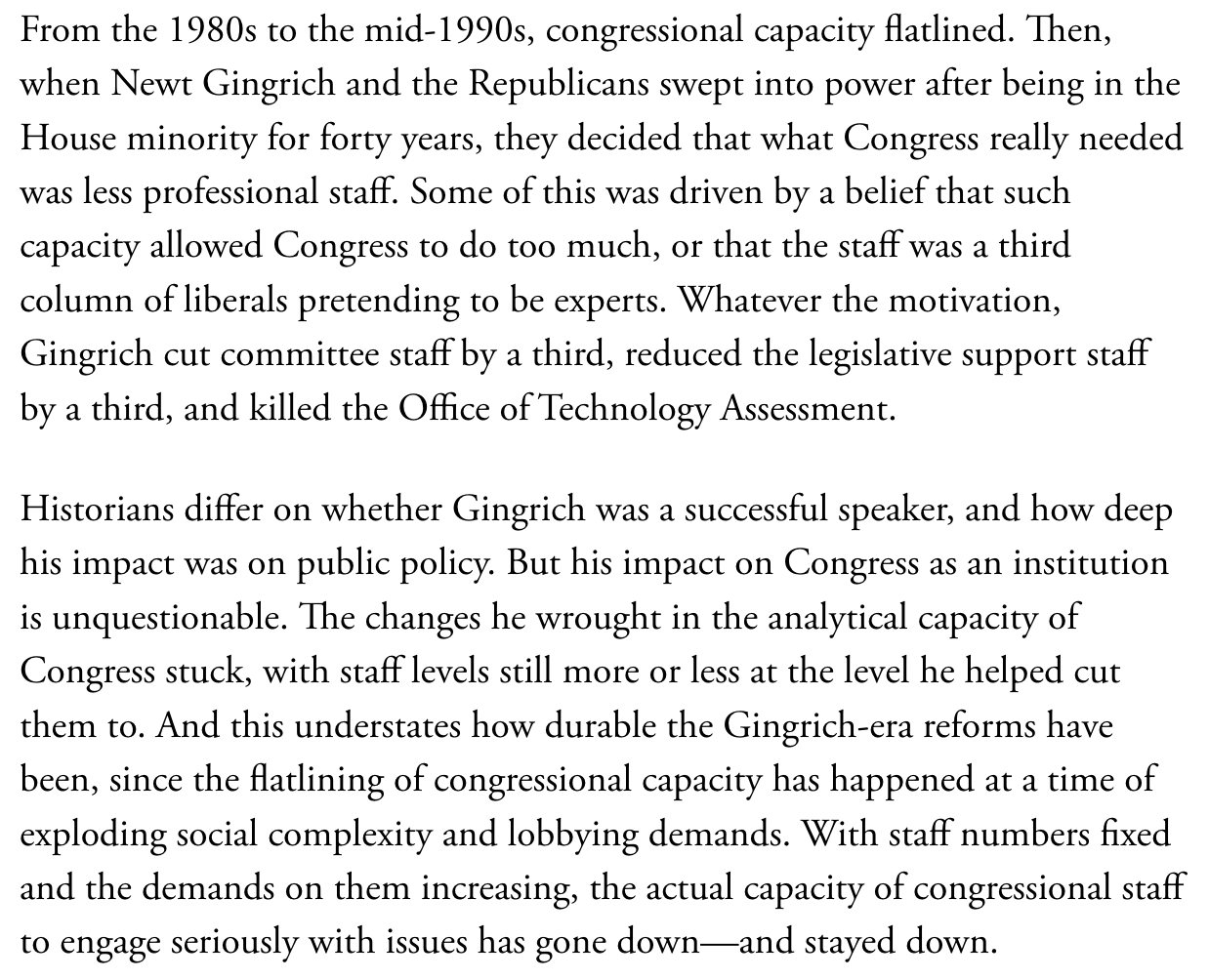Why we need a much deeper state #LeeDrutman #StevenTeles https://www.theatlantic.com/politics/archive/2015/03/when-congress-cant-think-for-itself-it-turns-to-lobbyists/387295/ cc @DetroitDan
On Gingrich's role:
 Text: From the 1980s to the mid-1990s, congressional capacity flatlined. Then, when Newt Gingrich and the Republicans swept into power after being in the House minority for forty years, they decided that what Congtess really needed was less professional staff. Some of this was driven by a belief that such capacity allowed Congress to do too much, or that the staff was a third column of liberals pretending to be experts. Whatever the motivation, Gingrich cut committee staff by a third, reduced the legislative support staff by a third, and killed the Office of Technology Assessment. Historians differ on whether Gingrich was a successful speaker, and how deep his impact was on public policy. But his impact on Congress as an institution is unquestionable. The changes he wrought in the analytical capacity of Congress stuck, with staff levels still more or less at the level he helped cut them to. And this understates how durable the Gingrich-era reforms have been, since the flatlining of congressional capacity has happened at a time of exploding social complexity and lobbying demands. With staff numbers fixed and the demands on them increasing, the actual capacity of congressional staff to engage seriously with issues has gone down—and stayed down.
Text: From the 1980s to the mid-1990s, congressional capacity flatlined. Then, when Newt Gingrich and the Republicans swept into power after being in the House minority for forty years, they decided that what Congtess really needed was less professional staff. Some of this was driven by a belief that such capacity allowed Congress to do too much, or that the staff was a third column of liberals pretending to be experts. Whatever the motivation, Gingrich cut committee staff by a third, reduced the legislative support staff by a third, and killed the Office of Technology Assessment. Historians differ on whether Gingrich was a successful speaker, and how deep his impact was on public policy. But his impact on Congress as an institution is unquestionable. The changes he wrought in the analytical capacity of Congress stuck, with staff levels still more or less at the level he helped cut them to. And this understates how durable the Gingrich-era reforms have been, since the flatlining of congressional capacity has happened at a time of exploding social complexity and lobbying demands. With staff numbers fixed and the demands on them increasing, the actual capacity of congressional staff to engage seriously with issues has gone down—and stayed down.